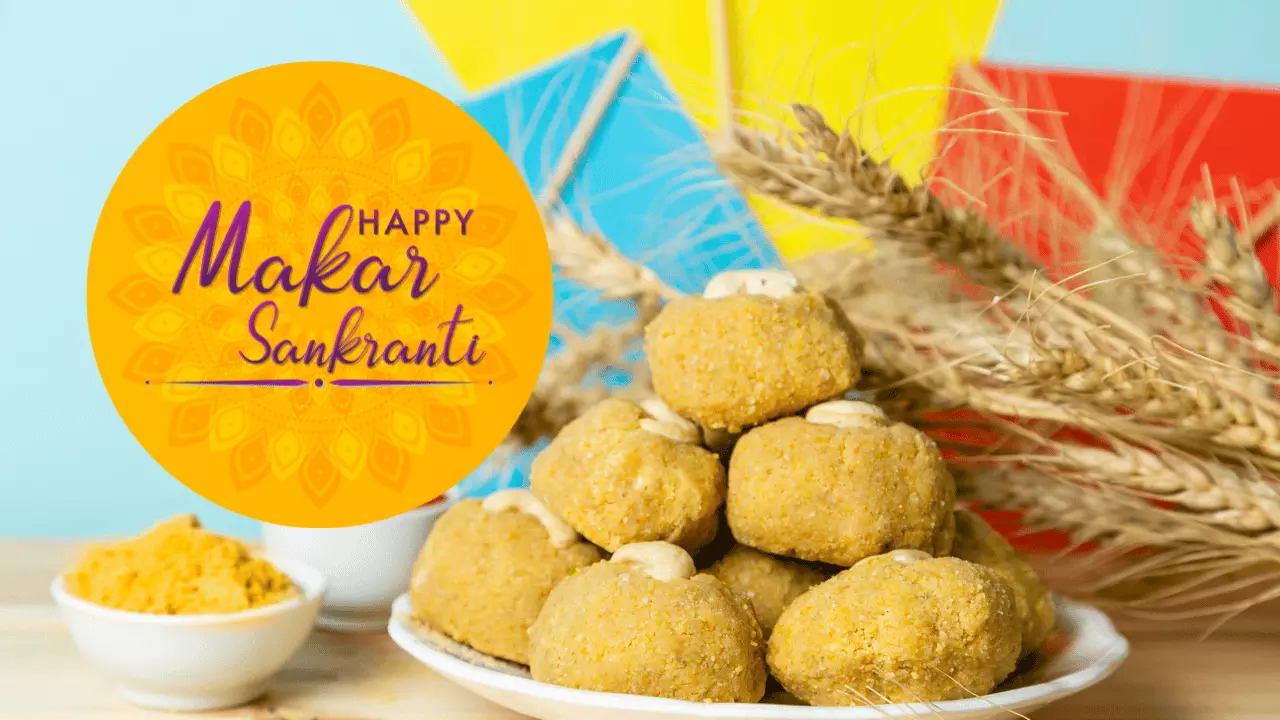Makar Sankranti 2024 is a significant festival in India. This year the festival of Makar Sankranti will be celebrated on 15 January. This festival is celebrated when the Sun moves into the Capricorn (Makar) zodiac sign. This transition, known as ‘Sankranti’ in astrology, marks the end of winter and the beginning of longer days. The festival is observed with diverse customs and traditions across India.
Makar Sankranti 2024 Date and Time

- The moment of Makar Sankranti is from January 14, 11:24 PM to January 15, 02:45 AM.
- The Makara Sankranti Punya Kala, which is the auspicious time for rituals and charity, lasts from 05:29 AM to 07:05 PM on January 15, for a total duration of 13 hours and 36 minutes.
- The Makar Sankranti Maha Punya Kala, considered especially sacred, is from 05:29 AM to 07:45 AM on January 15, lasting 2 hours and 16 minutes.
Makar Sankranti is often a public holiday in India and celebrations can last from two to four days in various states. Keep an eye out for local traditions and ways to celebrate this auspicious festival!
Makar Sankranti celebration
Makar Sankranti in the Hindu calendar is a special day dedicated to worshipping Surya Deva, the Sun God. It’s a time for people to take a holy bath in rivers, which is believed to wash away sins and bring prosperity.
On this day, people perform charitable acts and show respect to their livestock, which are important parts of life in many Indian communities. There’s a belief that those who die on Sankranti directly go to heaven. While some people celebrate it with festivals, others consider it the start of Uttarayana, the northward movement of the Sun.
Sweets like gur (jaggery) ladoos and til (sesame seeds) are popular during this festival. The Kumbh Mela, a famous mass pilgrimage that happens every twelve years, is also associated with this festival, drawing large crowds from around the globe.
Families often give married daughters kitchen items and make charitable donations. Helping the less fortunate and engaging in humanitarian efforts on this day is believed to bring luck to the family. Makar Sankranti is a time of joy, giving, and community spirit.
Why Do People Do Kites Flying on Makar Sankranti?
During Makar Sankranti, one of the most beautiful scenes is the sky filled with colorful kites. This is a common sight in many places, especially in the morning. Some areas even hold kite flying competitions, adding to the excitement.
Flying kites is not just fun; many people see it as a way to get closer to Heaven and a means to give thanks to the gods. As the kites soar high in the sky, it symbolizes reaching out to the divine, adding a spiritual dimension to this enjoyable activity. This tradition of kite flying brings joy and a sense of community during the festival.
Makar Sankranti 2024: Global Celebration
Pongal, Lohri, and Makar Sankranti are widely celebrated not only in India but also in several countries around the world, including the United States, Canada, European nations, Malaysia, Singapore, and Australia. In Sri Lanka, this festival is known as Ulavar Thirunaal or Thai Pongal and is celebrated over two days.
On the first day, a dish similar to the Sakkarai Pongal made during Tamil Nadu’s Pongal festival is prepared. This Sweet Rice Pudding is made by boiling milk and adding rice, jaggery, and sugarcane syrup, offered as a sacrifice to the sun god Suriyapakaran.
The second day, called Mattu Pongal, is dedicated to thanking the oxen for their help in agriculture.
In 2024, the timing of Makar Sankranti in different parts of the world will be:
- In USA: January 14, 10:19 AM Eastern Standard Time (EST).
- In Europe: January 14, 03:19 PM Greenwich Mean Time (GMT).
- In Australia: January 15, 02:19 AM Australian Eastern Daylight Time (AEDT).
These celebrations bring together communities across the globe, reflecting the universal themes of gratitude, renewal, and joy.
Significance of Makar Sankranti
Makar Sankranti, celebrated every January, is a significant Hindu festival that honors the sun god, Surya, and commemorates the goddess Narashansa’s birth. This festival involves various spiritual rituals, such as offering prayers to the Sun and taking sacred dips in rivers, which are believed to cleanse and purify the soul.
One of the festival’s highlights is the preparation and sharing of sticky sweets, symbolizing joy and peace. These sweets are a way of spreading happiness and goodwill among friends and family.
Makar Sankranti is a pan-Indian solar festival known by different names in various regions. In Andhra Pradesh, it’s called Pedda Panduga, in Tamil Nadu, it’s Pongal, Magh Bihu in Assam, Magha Mela in central and northern India, and simply Sankranti in Kerala. Each region celebrates it with unique customs and traditions, but the underlying essence of thanking the Sun and celebrating the harvest remains common.
Things you should avoid on Makar Sankranti 2024
On Makar Sankranti, certain practices and foods are traditionally avoided to respect the sanctity of the festival. It’s advised to stay away from non-vegetarian food, onions, and garlic. The focus is on consuming pure, vegetarian foods.
It’s also considered important to treat everyone, especially the weak and impoverished, with respect and kindness. Mocking or making fun of others is discouraged.
For women, there’s a tradition of not washing their hair on this day. Additionally, cleaning teeth during the holy period is often avoided.
Activities like tree pruning are not recommended on Makar Sankranti. If you have cows or buffaloes at home, it’s suggested to avoid milking them on this day.
Furthermore, it’s a good practice to refrain from consuming gutka, alcohol, tobacco, or other intoxicants during Makar Sankranti, as a sign of purity and devotion. These traditions are part of maintaining the spiritual and respectful atmosphere of the festival.